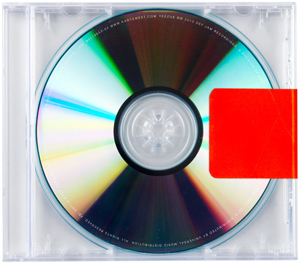The Religiosity of Kanye West Humanism of Hip Hop, pt. 1

There is no arm of youthful rebellion more culturally visible than music. The popular narrative of the last half-century was of kids fighting the oppression of their elders by picking up instruments and exploring new sounds, sounds which startled and bewildered their disapproving parents.
In reality, this vision of the past is oversimplified and a little disingenuous. There certainly were young people who enjoyed particular veins of music specifically to antagonize others or to set themselves apart, but music has always been less about division and more about identity. As we define generations by what they listened to and how they dressed, people living through those generations think less about their self-image and more about the ways in which they connect to the instruments of popular culture which come to define them. It’s not about what the music represents, but how it makes them feel.
When cultural historians define today’s generation, they’ll undoubtedly use the evolution of hip-hop as a touchstone. While rap and hip-hop have existed since the late 1970s, within the last decade it has flourished and outsold other genres, analogous in many ways to the newfound dominance of rock and roll in the 1960s. In the same way that young people identified themselves by which kinds of rock they listened to, youths today find connections in the ever-branching limbs of hip-hop.
The ascent of hip-hop has, however, come into conflict with other important national trends over at least one major issue: religion.
The most recent Pew Research study on religion in America noted a sharp rise in the number of people no longer affiliated with a religious doctrine. This trend is especially prevalent in people aged 18-29, 31% of whom say they are no longer affiliated with any religious institution, and nearly a quarter of whom say they are not at all religious. The youth of today are showing less and less interest in religious teachings, and the numbers are on the rise.
It may seem a bit odd, then, that so many major hip-hop artists, artists whose music is in many ways defining this young and irreligious generation, are not only deeply religious but produce music that includes overt tributes to their own faith.
Consider Kanye West, whose new album Yeezus has been the year’s most anticipated release. Aside from the blatantly religious (and ostentatious) title, the record is littered with references to a Christian god. This should be unsurprising for a man who won a Grammy for the song “Jesus Walks” in 2004, but to consider the size and scope of not only West’s audience but also his critical devotion, it’s staggering that in a country of ever-deepening religious skepticism an album as blatantly Christian as Yeezus would be an almost guaranteed best-seller.
But what’s most troubling for the non-believing listeners isn’t the album’s religious content. What’s most troubling is that the religious content is so common in hip-hop that it’s not even mentioned.
So many popular rap artists are vocally religious that it’s become not just acceptable, it’s become the norm. It seems like every major rapper, from Drake to Kendrick Lamar to Mos Def to Common to Snoop Dogg (sorry, Snoop Lion), has some reference to their religious beliefs placed prominently in their songs. It’s almost hard to remember the days of Christian rock, when singing about Jesus in a single meant a band could only be played on religious radio stations. Today, it’s rarer to find a rapper who doesn’t make hay of their faith than to find one who does.
This isn’t to say that religion is the only element that’s frustrating for humanist rap fans. There are prominent atheist rap artists whose content is just as uncomfortable, most notably the controversial LA collective Odd Future, a group of young men who promote atheism but use Satanic imagery on their album covers and rap about rape, murder, and drugs to the point that it’s cartoonish.
Humanists need a place in the hip-hop community. Some artists or groups with whom they can identify and whose art they can celebrate must exist. What does a humanist rap artist look like? Someone who promotes social welfare and the pursuit of truth. Someone who explores what it means to be human in turbulent times. Someone whose music is arresting and exciting, but also thoughtful.
Humanism is very much a part of hip-hop, though maybe it’s less visible to the casual listener. Given time and some exploration, we might find that this generation isn’t best defined by mainstream rappers screaming “I Am A God,” but by the responsible and introspective character which rests in the hearts of the best, and most humanistic, artists.
